According to the Kenyan Ministry of Health, malaria still remains one of the top 10 causes of death in the East African country, and a leading killer of children under five. The prevalence has remained high, with an incidence of up to 27 percent among children aged less than five years, especially in the country’s lake region, where the condition is endemic.
In Kakamega, specifically, malaria is the first killer disease, according to Dr. Aimable Niyubahwe, a medical officer at St. Mary’s Mumias Mission Hospital.
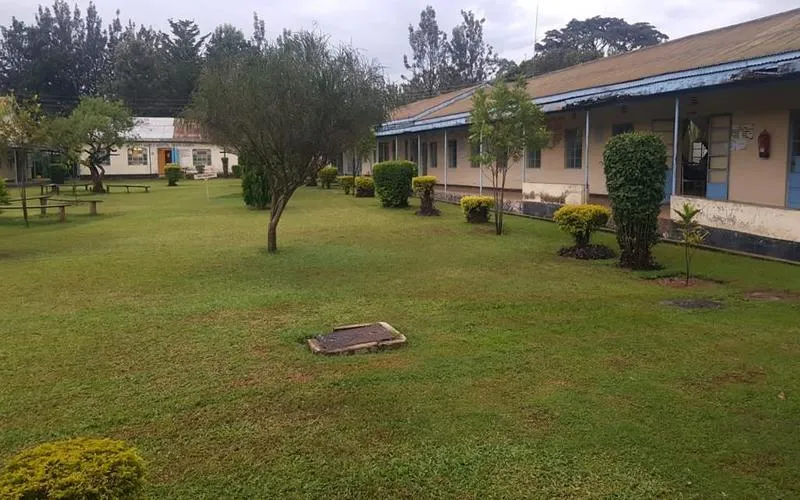 St. Mary's Mumias Mission Hospital. Credit: Fr. Columban Odhiambo
St. Mary's Mumias Mission Hospital. Credit: Fr. Columban Odhiambo
Dr. Niyubahwe told ACI Africa that up to 200 children are admitted at the facility every month with malaria.
“Malaria is the first on the list of top ten illnesses that we get in this hospital, followed by Anemia and pneumonia,” the medic said during the October 8 interview.
(Story continues below)
The Administrator of the Catholic health facility, Fr. Columban Odhiambo, told ACI Africa that one of the reasons that could have led the hospital to be selected for the malaria vaccine pilot project is its well-coordinated MCH department.
“We are not only in a malaria prone area. We also have high volumes of children at our facility and offer precise statistics in terms of reporting the sickness and well-coordinated mother-to-child care structures,” the member of the Clergy of Kenya’s Kakamega Diocese said.
Judith Anyanje, a senior nursing officer at MCH told ACI Africa that participation in the pilot program was voluntary for mothers who had children aged below a year.
“We have had antenatal mothers attending our health talks where we create awareness on the vaccine. Those who get their children vaccinated pass the information on to others and everyone enters the program armed with all the information they need about the vaccine. They then come here voluntarily,” Ms. Anyanje told ACI Africa.
The vaccine is given in four doses, the nurse explained to ACI Africa, adding that the first dose is given when the child is aged six months; the second dose is given four weeks later, when the child is seven months old; the third dose is administered eight week later, when the child is nine months old; and the fourth dose is given when the child is two years old.
The Kenyan nurse further reported that after the first dose in September 2019, the second dose was given to 354 children while the third dose was given to 58 children.
In 2020, a total of 2,710 children were inoculated in vaccinations that were also given in three doses while an additional 2,072 were vaccinated in 2021 at St. Mary’s Mumias Mission Hospital.
Dr. Niyubahwe said that those who were vaccinated at the start of the project in September 2019 were all eligible for their fourth and final vaccination in September 2021.
The Kenyan medical doctor lauded the vaccine for reducing child mortality rates at the hospital, saying, “We have seen the numbers of children who died from malaria reduce significantly from the time we started vaccinating them.”
He went on to recall, “Before the vaccine, in 2018, the hospital registered 18 deaths of children aged below five years who were brought in with malaria. In 2019, the number reduced to two who had not been vaccinated. We are happy to report that our hospital didn’t have any child mortalities owing to malaria in 2020.”
On her part, Mirabel, the Kenyan mother of three, admitted that despite her zeal to participate in the pilot project, she had a few reservations.
“Being a mum, it is normal to be worried about your children especially knowing that vaccines usually have side effects. But the sensitization at this hospital was good and, in the health talks I attended, I was told about the side effects to expect and how to deal with them,” she said, and added that her son only developed mild fever after the vaccination.
This, she says, was easier to manage than dealing with malaria. “The fever in malaria was very severe. As soon as the fever started, the baby would start to vomit. They stopped eating. It was always so terrible.”
Mirabel’s message to parents who are still skeptical about the vaccine is to trust the World Health Organization (WHO), which has already declared the vaccine a big win in the health sector.
“My message to parents who have a child that has not started the vaccination is, please let them start. The vaccine has saved a lot of my anguish. I have seen that when my baby falls sick now, it is not as severe as I saw in my other two children,” she said during the October 8 interview.
Fr. Columban told ACI Africa that one of the misconceptions around the malaria vaccine in Kakamega is the assumption that once vaccinated, a child is completely free from getting malaria.
Dr. Niyubahwe, however, explained that vaccines do not completely rule out the possibility of one getting sick but reduce the severity of diseases once one is infected.
“Vaccination is a process of inducing immunity in the body to fight a disease that may come later in the life of an individual. Vaccination doesn’t mean that one is completely safe. It means that once infected, the body will know what kind of protection to unleash such that the degree of severity once infected will be low,” Dr. Niyubahwe said.
Fr. Columban reiterated the medic’s message saying, “The vaccine is good but it doesn’t protect one from being bitten by a mosquito. Parents should ensure that their children safely sleep in mosquito nets.”
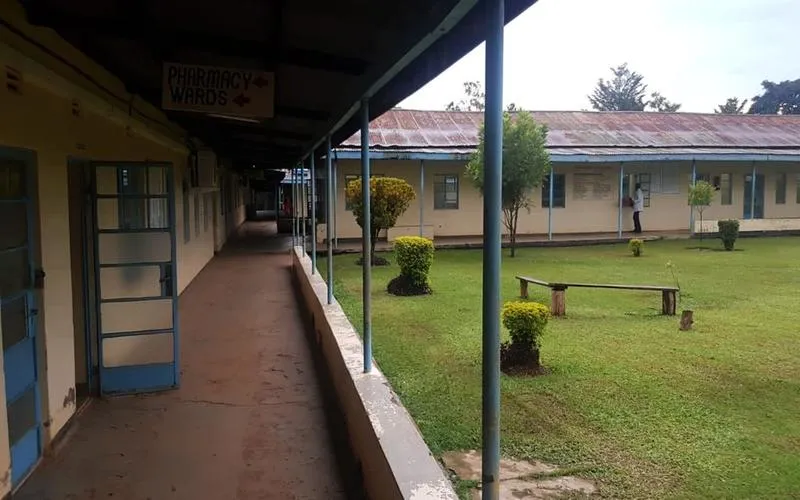 St. Mary's Mumias Mission Hospital. Credit: Fr. Columban Odhiambo
St. Mary's Mumias Mission Hospital. Credit: Fr. Columban Odhiambo
The Priest of Kakamega Diocese called on the Kenyan government to intensify other efforts, such as the fumigation project, to fight malaria since the available vaccine only takes care of children.
He said, “I have heard that the government was spraying pesticides to wipe out mosquitoes. If we combine all these initiatives, malaria will be a thing of the past in this country.”
The Kenyan Priest also urged the government to put structures in place to meet the expected high demand of the vaccines now that it has been announced as a big win for children in areas that have been battling with malaria.
Ms. Anyanje also noted that the malaria vaccine was good news to households and health facilities in the East African nation.
“With this vaccine, Kenyan children have been saved. Mothers have been saved. Hospitals are also relieved because it breaks our hearts to lose children to malaria,” the Kenyan senior nursing officer told ACI Africa October 8.
She added, “As a nurse, I call upon the government of Kenya to ensure that the vaccination is rolled out in remote areas of the country to benefit others who can’t access it in major hospitals.”
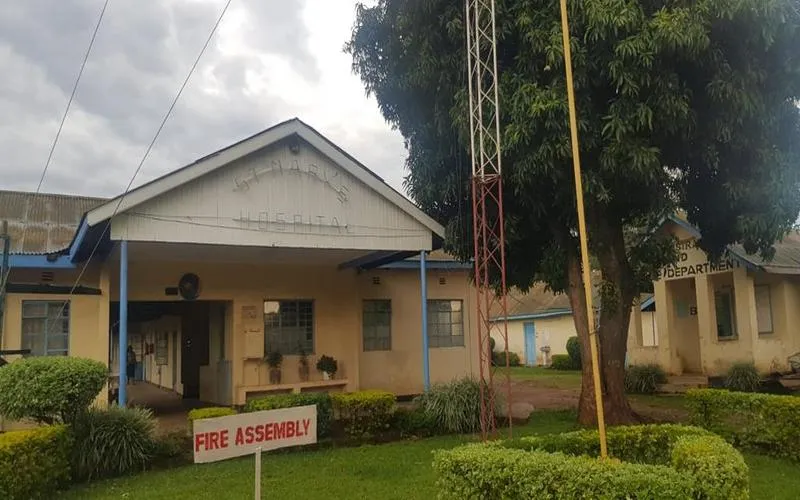 St. Mary's Mumias Mission Hospital. Credit: Fr. Columban Odhiambo
St. Mary's Mumias Mission Hospital. Credit: Fr. Columban Odhiambo


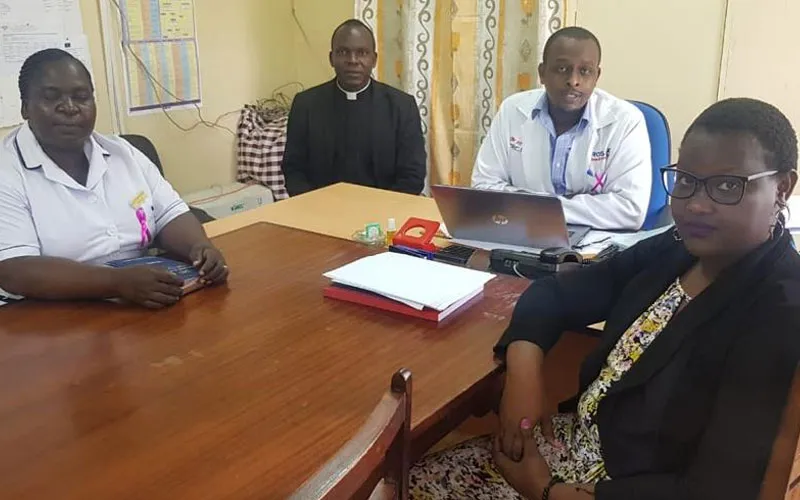

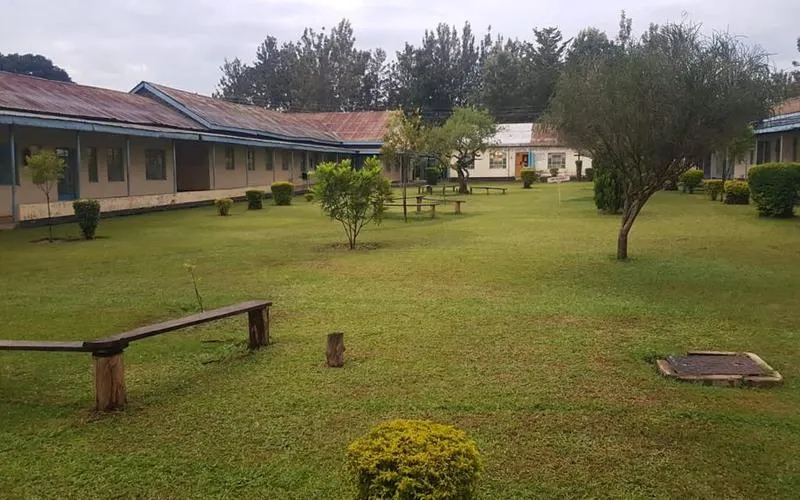 St. Mary's Mumias Mission Hospital. Credit: Fr. Columban Odhiambo
St. Mary's Mumias Mission Hospital. Credit: Fr. Columban Odhiambo St. Mary's Mumias Mission Hospital. Credit: Fr. Columban Odhiambo
St. Mary's Mumias Mission Hospital. Credit: Fr. Columban Odhiambo St. Mary's Mumias Mission Hospital. Credit: Fr. Columban Odhiambo
St. Mary's Mumias Mission Hospital. Credit: Fr. Columban Odhiambo


